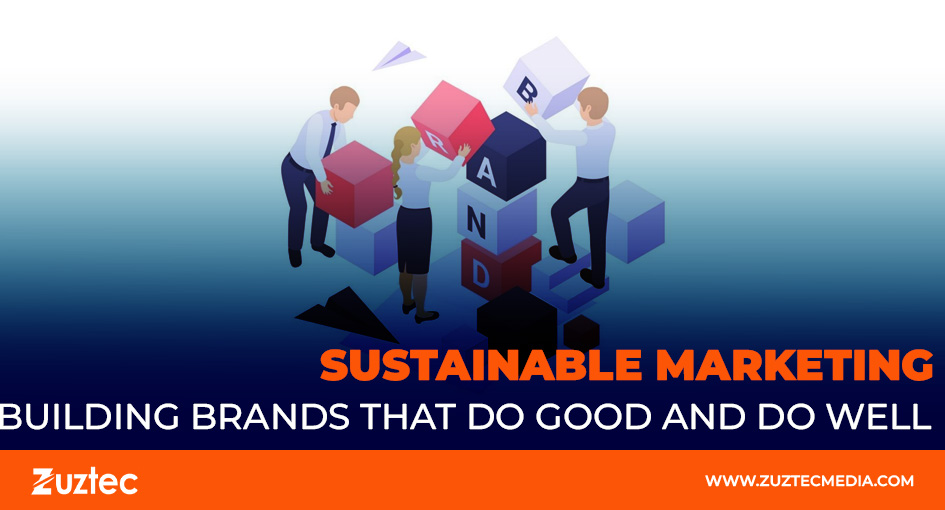
Sustainable Marketing: Building Brands That Do Good and Do Well
In today’s era of conscious consumerism, businesses are facing a major pivot. It’s no longer enough to just sell products or offer services—customers are paying closer attention to how companies operate behind the scenes. As a result, sustainable marketing has emerged as a powerful approach that not only drives brand loyalty but also supports the planet, people, and long-term profitability.
This isn’t a fleeting trend. From global brands to local startups, businesses are now expected to demonstrate values that go beyond quarterly earnings. Consumers—especially Gen Z and millennials—actively seek brands that align with their environmental and ethical ideals. In such a climate, integrating sustainability into your marketing strategy isn’t just good PR—it’s essential for survival.
The Core of Sustainable Marketing
At its heart, it refers to marketing strategies that promote environmentally and socially responsible practices. It focuses on delivering genuine value—not only to customers but also to the broader ecosystem in which a business operates. This includes everything from reducing waste and conserving energy to fair labor practices and ethical sourcing.
But sustainable marketing is more than just green messaging or carbon-neutral logos. It’s a holistic mindset shift. Instead of pushing consumption, sustainable marketers encourage mindful purchasing. Rather than promoting disposable trends, they spotlight longevity and purpose. The goal is to create a marketing approach that supports sustainable growth—for the business and the world around it.
Principles That Define Sustainable Marketing
Transparency and Authenticity
One of the most critical pillars of sustainable marketing is honesty. Consumers can quickly detect greenwashing—when brands exaggerate or fabricate their eco-friendly claims. To build credibility, companies must be open about their practices, progress, and even shortcomings. Transparency builds trust, which is vital in any lasting customer relationship.
Purpose-Driven Messaging
Sustainable means a purpose-first, profit-second marketing. That doesn’t mean businesses should ignore profitability, but rather align it with a higher mission. Brands that embed sustainability into their DNA—and communicate that authentically—tend to connect more deeply with their audience.
For example, The Body Shop has long championed cruelty-free testing and community trade. These values are not just marketing angles; they’re embedded in every aspect of the company’s operations, from sourcing ingredients to packaging design.
Life Cycle Thinking
Rather than focusing solely on the point of sale, sustainable marketers consider the entire product lifecycle: where materials come from, how products are used, and what happens at the end of their lives. Messaging might include how to reuse or recycle a product or even how to dispose of it responsibly.
This principle is becoming increasingly important in industries like fashion and tech, where e-waste and fast fashion have caused significant environmental harm. Brands that offer repair services, take-back programs, or compostable packaging stand out for their commitment to circular thinking.
Real-World Applications and Strategies
Eco-Conscious Packaging and Branding
Packaging plays a major role in marketing—and waste. Many companies are now shifting to recyclable, biodegradable, or reusable packaging as part of their marketing efforts. Even better, they’re turning this shift into a story, using it to educate consumers and highlight their commitment to change.
For instance, Lush Cosmetics wraps some of its products in cloth knot-wraps made from recycled plastic, offering an attractive, zero-waste alternative to paper or plastic bags. Their stores are also designed to minimize single-use materials, reinforcing the brand’s values.
Leveraging Social Media for Impact
Social media provides a powerful platform to share sustainability stories, from behind-the-scenes operations to community initiatives. But instead of using these channels purely for self-promotion, brands excelling in a sustainable approach of marketing often use them to inspire change, highlight partner organizations, and create meaningful conversations.
Hashtags like #SustainableLiving and #EthicalFashion has become a digital community in itself. Brands like TOMS Shoes and Ben & Jerry’s use these spaces not only to promote their offerings but to amplify causes they care about.
Partnering with Like-Minded Organizations
Collaborations with nonprofits, eco-certification programs, or other purpose-driven brands can enhance credibility and impact. These partnerships allow businesses to expand their influence while supporting causes aligned with their values.
The Future of Marketing
Regenerative Marketing Is on the Horizon
The future isn’t just about reducing harm—it’s about actively doing good. Regenerative marketing takes sustainability a step further by promoting practices that restore ecosystems, improve communities, and create net-positive impact. Think brands investing in reforestation, soil health, or social equity projects.
This shift will likely redefine how success is measured—not just in ROI but in environmental and social returns as well.
Technology Will Drive Accountability
Blockchain for supply chain transparency, AI for optimizing resource use, and smart sensors for real-time emissions tracking—technology is making marketing more measurable and efficient than ever before. With greater accountability comes stronger consumer confidence and better decision-making.
As tools become more accessible, even small businesses will be able to compete with giants in the sustainability space, leveling the playing field and accelerating global progress.
Ultimately, in a world facing climate change, resource scarcity, and social inequality, sustainable marketing is not just a strategic advantage—it’s a moral imperative. Consumers are calling for brands to step up, and those that do are being rewarded with deeper loyalty, increased relevance, and long-term viability.
The future belongs to businesses that embed sustainability into the very core of their operations—and communicate it authentically. As the line between marketing and activism continues to blur, the brands that lead with purpose and action will not only shape consumer choices but help shape a better world.

